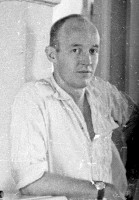“Striking for the gentle, striking for the kind,
Striking for the guardians and protectors of the mind,
An’ the poet and the painter far behind his rightful time,
An’ we gazed upon the chimes of freedom flashing”
Excerpt from Bob Dylan, “The Chimes of Freedom Flashing”
(Note: Click on any image you may want to enlarge.)
Richard Neal Henderson attained his B.A.. in Anthropology at the University of New Mexico in 1956 and his PhD. in Anthropology at the University of California, Berkeley in 1963.
Helen Kreider Henderson attained her B.A. in Anthropology at Syracuse University in 1958, her M.A. in Anthropology at University of California, Berkeley in 1960 and her PhD. in Anthropology at the same institution in 1969.
Richard (Dick) is the author of the text that follows in this “About” page (and of most of the materials contained in this website, aside from the Chapter presenting Helen’s PhD. Dissertation. . I will make additions to these materials as I see fit during the development of the website. The entire production is part ethnography, part history, and part personal memoir, since in my view the memoir aspect is a necessary complement to the other two (though I did notl grasp this when I began my career as an anthropologist, and the work suffered somewhat as a result).
Helen and I did anthropological fieldwork together in Onitsha, Nigeria, from 1960-1962. During this time we witnessed the Interregnum following the death of (King) Obi Okosi II, and did research which led directlly to completion of my dissertatio at Berkeley, which later evolved into my 1972 book on Onitsha Kingship and social structure, The King in Every Man.
From 1963, I worked as an Associate Pofessor at Yale, while Helen Taught at Wellesley College In Massachucets. In 1972 we moved to Tucson, Arizona, where I became a Professor of Anthroplogy at the University of Arizona. Helen helped create theUniversity of Arizona’s Women in Development program, in which she worked as a consultant throughout the 1980s and 1990s. This work took her on many research trips throughout West Africa and elsewhere. She also became a highly admired professor in Women’s Studies at the U of A.
Helen died on April 12, 2017, due to Alzheimer’s Disease, from which she suffered progressively after her retirement from the U of A in 2001.
Now, take note of the link I provide here directly below. This page contains many more details about Helen and me than most readers will care to know. This material, pieces written at various times, presents s something like a sketchy autobiographical account of our lives.

